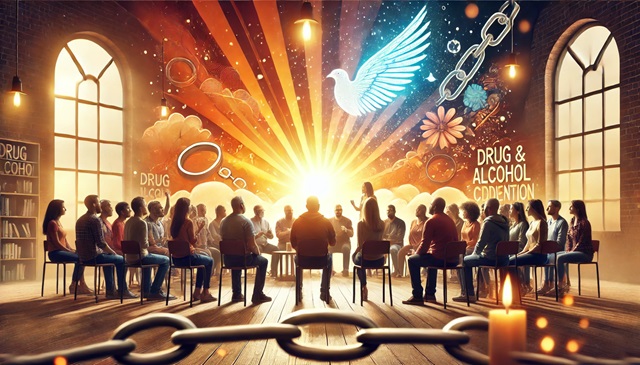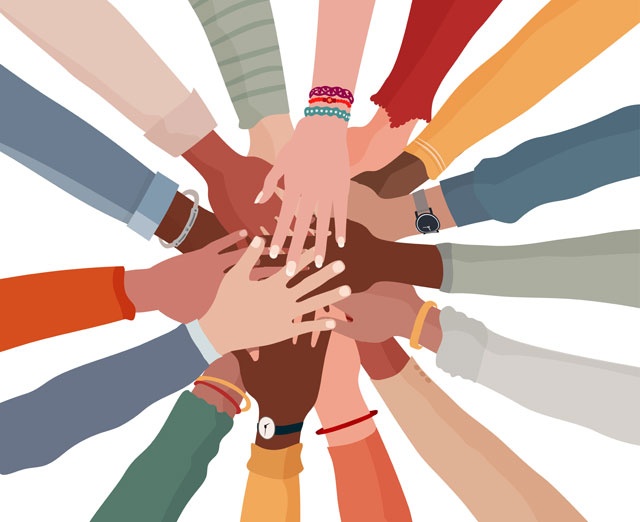Let's face it. Even though there are millions of addicts in the world, there are still myths and stereotypes around addiction and recovery. Addicts are thought of in all the worst ways--as people without any willpower, as people with weak constitutions, and as people who have nothing better to do in the world but drink and used drugs.
These kinds of attitudes serve as major obstacles in the recovery of addicts and do nothing to help them recover. Here are some common myths around recovery and addiction:
-
Addiction is nothing but a lack of willpower. The truth is that using drugs involves a prolonged exposure to chemicals that alter the brain. These types of exposures result in extreme cravings and an overwhelming compulsion to consume the person's drug of choice. It makes it very difficult to rely on willpower to overcome drug and alcohol abuse.
-
Addiction involves hitting rock bottom. People believe that if this doesn't happen, the person won't every get better. The truth is that recovery can start at any time in the addiction process. The earlier the individual tries to get help, the better is their chances of getting better. If drug use continues for long periods of time, the addiction becomes stronger and the condition is more difficult to treat. This means you shouldn't intervene only when the person has hit rock bottom.
-
You can't force someone to go into treatment. People believe that the addict must want to be helped. The truth is that treatment can be helpful, even if it isn't voluntary. It is possible to receive help even if they are pressured into being treated by the legal system, their employer, or their family. These people are just as likely to have benefit from treatment when compared to those who decide to undergo treatment without being coerced. As they become sober, their thinking clears and many resistant addicts make the decision that they want to get help.
-
Addiction is not a disease. Many people believe that there is nothing that can be done about addiction. The truth is that many experts believe that addiction is a disease that has an effect on the brain but that doesn't mean the person is helpless to get better. The brain changes you see with addiction can be altered and even reversed through exercise, medication, therapy, and other types of treatments.
-
Treatment failed before so it won't help to try again. The truth is that drug addiction recovery is an extremely long process that involves times of setback. Having a relapse doesn't mean that there has been a treatment failure or that there is no chance for sobriety. Rather than believe that treatment won't help, it is a sign to get back on track by entering treatment again or by changing the treatment approach.
-
Drug addiction is a character flaw. Rather than seeing addiction as a character flaw, many people don't know that drug addiction is a brain disease. Each type of drug abuse changes the brain in different ways but many of the effects drugs have on the brain are similar. Addiction changes the molecules and cells inside the brain, resulting in changes in memory and changes in mood. The drug becomes a powerful motivator and the drug user simply can't stop using. It has nothing to do with having a character flaw. It is much more a problem of brain changes than it is a problem of having a character flaw.
-
You have only one chance for treatment. The truth is that, like many other chronic diseases, drug addiction has times when the person is relatively healthy and times when they are using. While it is possible to quit cold turkey or get better after one course of treatment, many people who use drugs require more than one try at the treatment process. Repeated treatment may be necessary.
-
There is just one "magic bullet" for all types of drug use. The truth is that drug treatment is an individual process and that different people have different problems related to their drug abuse. People respond differently to identical forms of treatment, even when they are using the same drug. This means that drug addicts need a variety of treatments and therapies that address their individual needs.
-
Addicts don't need treatment and can stop using if they choose to. The truth is that it is very difficult for addicts to change the function of their brain in order to achieve and maintain long term sobriety. Long term drug abuse changes the way the brain functions, resulting in increasing number's of cravings. This makes it very hard to stop using on their own. This is especially true for teenagers as they become addicted to drugs and alcohol much faster than is the case with adults. Teens have a greater risk of psychological, mental, and physical harm from their drug use.
-
Treatment never works. The truth is that treatment can be very helpful. Research has shown that drug treatment lessens drug use by 40-60 percent and can make a difference in things like criminal activity after the person has been treated. Drug addiction also reduces the likelihood of developing an HIV infection and IV drug abusers who go through treatment are up to 6 times less likely to develop HIV than IV drug abusers who do not go through treatment. This improves their employability, with an increase in employment that approaches 40 percent following treatment.
-
If you've tried one type of treatment, there is no other treatment that will help. The truth is that not every program or doctor will be the right fit for every addict. For many addicts, it may take trying out different kinds of treatments and/or doctors before they can find one that will be effective. A perfect match is out there if you just keep looking.
Interested in learning more? Why not take an online Understanding Addictions course?
-
Drug treatment can be accomplished in just a few weeks. According to research, it can take a minimum of ninety days of intensive treatment for an outpatient treatment program to work and at least 21 days for a short term inpatient program to work. To maintain the strides achieved through treatment, it is necessary to have follow-up support and supervision.
The best predictor of success in a treatment program is the length of the therapy. Patients who remain in treatment for up to a year have double the chance of staying free of drugs. Teenagers who met the treatment time were more than 1 ½ times more likely to be drug and alcohol free after treatment. Completing treatment is just the first step toward recovery that can last a lifetime.
-
It is hopeless if the addict continues to use drugs after treatment. The truth is that drug addiction is chronic and that relapses do not mean that the treatment has failed. Things like psychological stress from family problems, environmental issues, and work can easily cause the addict to relapse again.
Addicts are most likely to relapse immediately following treatment (within the first few months). Children are most likely to relapse when they are forced into environmental situations that led them to drug abuse in the first place. Recovery is an extremely long process and often requires many attempts at treatment before long term sobriety can happen.
-
Addicts are simply bad people who deserve punishment. Many people believe that addicts are immoral, weak-willed, or simply bad. This leads to hostility toward addicts that is different from the way people treat others with chronic diseases. The truth is that an addict can be anyone and that everyone deserves treatment.
-
Addiction is a personal choice. The truth is that addiction is more than just a personal choice and that recovery isn't just a matter of willpower. People don't choose to become an addict any more than they choose to have any other type of chronic illness. Heredity takes up about half of the chance of becoming addicted and things like upbringing, peer influences, and family life make up the other 50 percent of addictions.
There are brain imaging tests that have identified differences in the brain of addicts that are both the cause and effect of the person's addiction. There are neurobiological differences that are present in brain imaging long before the person becomes an addict. After the person begins to use drugs, there are changes in the function and structure of the brain from prolonged drug use that make it hard to feel pleasure, control impulses, or focus on things besides using drugs.
-
People generally become addicted to just one type of drug. In the past, it was believed that most addicts became addicted to just one type of drug. Nowadays, polysubstance abuse (defined as the use of three or more types of drugs at the same time) is normal. Some people engage in polysubstance abuse because they want to achieve a more intense high while others take more than one type of drug because they want to counteract the effects of other drugs they may be using.
Others choose a different drug because their drug of choice is not easily available. Polysubstance abuse is more common in men who begin to take drugs at an earlier age than women, and it is more common in young adults and teens. Those who use multiple substances are more likely to suffer from a mental illness when compared to those who use just one type of drug. This complicates their side effects and drug interactions, which makes taking more than one drug at a time riskier and harder to treat when compared to other kinds of drug abuse.
-
People who become addicted to prescription drugs are not the same as people who become addicted to illicit drugs. The use of prescription drugs carries less of a stigma than the use of illegal drugs. Because medications like Adderall, Xanax, and Vicodin are often prescribed by a doctor and are usually safe when taken as prescribed, there is a huge misconception that they are not as dangerous as illicit drugs. The truth is that people who become addicted to prescription drugs are no different from people who are addicted to illicit drugs. When people take prescription medication in huge doses or more often than they are supposed to for something they don't have, it affects the brain in the same way as taking illicit drugs and can be just as addictive.
-
Treatment should put addicts in their place. Even though it is widely believed that addiction is similar to cancer, diabetes, and heart disease, and that all are chronic diseases, addicts are often treated more poorly than those with other types of chronic illnesses. Some treatment facilities continue to use methods of treatment that are based on shaming the addict in order to motivate them to stop taking drugs. The truth is that kind and compassionate treatment is more effective than shame-based treatment. Shaming a patient is greatly predictive of having a relapse. Even so, the media continues telling people that there is a right way to recover and a wrong way to recover and that treatment based on kindness and compassion does not work.
-
Addicts will just use justification in order to avoid getting help for their addiction. The truth is that addicts sometimes just don't realize they are addicted or don't know what they need to do in order to recover. Using justification in order to avoid getting help for their addiction means that addicts will just see sobriety as a waste of time.
-
If people have many misconceptions about addiction and recovery, it can change the way they behave once they stop using drugs. This is partially true; however, once a person receives treatment, they are usually armed with the right information, the chances of relapse decrease significantly. If the addict believes that it is a normal thing to relapse, they often set themselves up to have a failure.
-
Relapse is just a normal part of recovery. This claim can be harmful if it is misunderstood. While it is true that many addicts will have some failed attempts at recovery before they finally quit using drugs, relapse doesn't have to be a normal part of recovery. Some people are able to receive and complete treatment and will never need to seek recovery again. Too many people believe that they have relapsed because it is a normal aspect of recovery. The truth is that if a person returns to their drug of choice, there is no proof that they will be able to stop using again. People who relapse often are playing a dangerous game and it shouldn't be seen as a normal part of recovery. Many individuals manage to become sober without having to relapse.
-
Recovery is a boring activity. Many addicts justify their drug use by believing that sober living is boring. The truth is that the life of an addict is often extremely predictable and dull. When a person begins using, there may be some excitement to it but this is quickly replaced by boredom and continual drug use. This makes the life of an addict tedious and often repetitive. Many people who become sober have lives that are anything but boring.
Recovering from drugs and alcohol can mean that the individual finds interesting and rewarding things to do that have nothing to do with drug or alcohol abuse. Many people in recovery lead full lives and say that they don't have enough time to do all the things they can now do now that they have become sober. Being sober is about discovering one's real passions and trying new things so that boredom is rarely a problem.
-
There is only one way to get over an addiction. When an addict successfully recovers, they will generally be very grateful and will have confidence in the variety of ways that they can use to become sober. The truth is that there are many ways to escape an addiction and that there is not just a single way for everyone to recover. Just because one form of treatment was helpful to one person, doesn't mean it will be helpful to another. The idea that there is just one approach to recovery is outdated and there are actually a variety of ways to recover. This means that more people will find a treatment choice that is helpful to them instead of resorting to just one treatment option.
-
If a person is a hopeless case, they will never recover and become sober. It used to be thought that some addicts were simply hopeless cases. These are those people who suffer repeated relapses or just don't seem to have the ability to recognize their situation. This often results in being diagnosed with a dual diagnosis of a mental health disorder and a substance abuse disorder. This can get in the way of true recovery. Recently, there have been improvements in the treatment of people with dual diagnoses so there are no longer situations where a person has become a hopeless case.
-
After a person enters recovery they will have no more problems. While giving up drugs and alcohol can help the addict recover from a big problem, it is not the end of their problems. The journey toward recovery is a never-ending one. Once an addict becomes further along in the recovery process, the better their life will be. There is no time when a person can be considered completely recovered from their addiction. Recovery is a process and not just an event.
Those who return to using drugs and alcohol will usually still have many problems. Those problems will likely still be there after the person becomes sober again. Being sober means facing reality and learning how best to cope with life. Recovery is all about developing new coping strategies that give the addict some mastery over their life.
-
Life is meaningless without drugs or alcohol. This is a complete misconception. While addiction can give an addict a purpose in life, life is much more meaningful and full of surprises once a person becomes free of alcohol or drugs. When people achieve sobriety, a vacuum can open up in their life, leaving room for many meaningful things to happen. After a while, the addict will uncover many new things that will give their life purpose and true meaning.
-
Recovery is about deprivation. Many addicts believe that, without drugs or alcohol, they will feel deprived and won't be able to enjoy life. It can seem like they are trapped in what can be described as a prison sentence rather than living a happy, healthy life. They may feel as though the one thing they really want is something they cannot have. The truth is that this belief is completely wrong for most addicts. In fact, once a person has recovered, they may not even think about drugs and alcohol as it is no longer a part of their life. While there are those who "white knuckle" it through recovery, it doesn't have to be all about deprivation. Those who feel deprived are usually those who don't put enough effort into recovering from their alcohol and drug addiction.
These myths about addiction and recovery are not only damaging to the addict and their family, but they are damaging to everyone. If history-making politicians, best-selling authors, artists, and business leaders become recovering addicts and are shamed into being silent about it, the myths only perpetuate. By having the understanding that drug and alcohol addiction is a brain disease and by allowing individuals to recover in a way that works the best for their needs, there can be significant strides in helping people overcome this huge health problem.


































